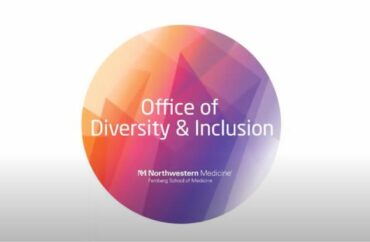
DEI programs dilute medical education, expert says
Over 70 medical schools maintain offices dedicated to “diversity, equity and inclusion” despite federal orders to end such programs, a medical advocacy group found.
Do No Harm’s DEI tracker includes schools such as Albany Medical College, Duke University School of Medicine, Harvard Medical School, Northwestern University Feinberg School of Medicine, Ohio State University College of Medicine, and Stanford University School of Medicine, among several others.
The advocacy group began tracking these offices in medical schools after the U.S. Department of Education instructed all institutions of higher education to end racially discriminatory policies in February.
President Donald Trump’s administration sent a “Dear Colleague letter” warning universities that they would lose federal funding if they continued to employ discriminatory practices, The College Fix previously reported. Universities were given a 14-day period to begin compliance.
Do No Harm’s research director, Ian Kingsbury, told The College Fix that DEI offices negatively impact medical education.
They push schools to adopt race-based “rather than purely meritocratic admissions and faculty hiring/promotion,” he told The Fix via email.
Kingsbury also said DEI programs push for curricula to focus on social issues instead of material that directly benefits doctors in their medical practice.
Further, DEI programs “enforce speech codes and create a culture of fear that infringes upon academic freedom.”
Even when the programs have supposedly ended, “it’s initially difficult to gauge which ones have in fact dismantled DEI or which ones are operating stealth programs,” Kingsbury told The Fix.
Similarly, Manhattan Institute fellow Heather Mac Donald told The Fix via email that these offices perpetuate harmful ideas that dilute the quality of medical education. Mac Donald is also a member of The Fix‘s advisory board.
The ideology states “that any disparity in racial representation in any institution is per se the result of racism, whether intentional or ‘systemic,’” she said.
Mac Donald also told The Fix that this ideology has led to the simplification of medical licensing tests, as black medical students’ lower average scores have prevented them from obtaining their preferred residencies.
“Every minute that students spend studying the phantom problem of medical school racism is a minute not learning how to save a life,” Mac Donald said.
She told The Fix that DEI offices perpetuate the ideology, but eliminating them will not necessarily rid the harmful ideas to which they are dedicated.
Some experts, on the other hand, believe DEI enhances medical education.
Samantha Truman, the chief executive officer of Advancing Health Equity, told The College Fix that medical schools are gateways for shaping the next generation of healthcare leaders “who will care for diverse patient populations across the country.” AHE is a non-profit that partners “with organizations on their journey to eliminate bias and discrimination in healthcare,” according to its website.
Truman believes DEI “play[s] a vital role in creating the infrastructure needed to uplift underrepresented voices and foster more inclusive environments.”
“[W]e’ve consistently seen how a lack of cultural responsiveness and understanding directly impacts patient health outcomes and perpetuates disparities in care,” she said.
“A diverse healthcare workforce leads to deeper empathy, greater psychological safety, and better clinical care,” Truman said.
The College Fix reached out to several organizations on the watchlist, including the University of Colorado School of Medicine, Central Michigan University, and Albany Medical College via email in the last two weeks to ask about their DEI offices. None responded.
MORE: FL med school official quits over audio discussing ways to avoid DEI ban
IMAGE CAPTION AND CREDIT: Northwestern U. Medical School’s DEI office logo; Northwestern University Feinberg School of Medicine/Youtube
Like The College Fix on Facebook / Follow us on Twitter






Please join the conversation about our stories on Facebook, Twitter, Instagram, Reddit, MeWe, Rumble, Gab, Minds and Gettr.